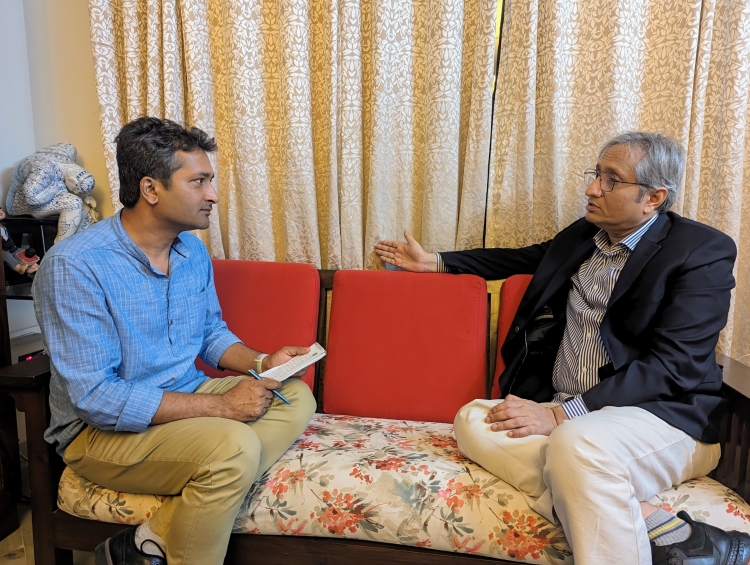Many journalists in ICFJ’s network are reporting on the dozens of elections happening worldwide, working to uncover the lies targeting voters – not an easy task.
For India’s recent elections, journalist Akhil Ranjan pulled back the curtain on popular YouTube programs that have sparked anger and violence. Billed as political debate programs, these “vox pop”-style videos feature hosts conducting interviews in crowded public spaces.
In his ICFJ-backed investigation, Akhil revealed these videos are not what they seem. A number are hosted and produced by people affiliated with right-wing Hindu nationalist parties, something they don’t disclose. Many inflame tensions, spewing hate speech about Muslims, racking up sometimes millions of views.
"I spit poison, I trigger riots,” one host told Akhil in the Delhi neighborhood where many of these videos are filmed.

The investigation is the first to publish this year through Disarming Disinformation, a three-year global initiative run by ICFJ and supported by Scripps Howard Fund. Through the program, journalists are investigating the people and money behind election lies: the trajectory of election conspiracies in the U.S., far-right disinformation campaigns in Spain, “digital mercenaries” in sub-Saharan African elections, and more.
Madeleine May, an investigative producer at CBS News in the United States, is leading one of the projects, which ICFJ is supporting through training, mentorship and funding. She took part in our global “Investigathon” in Tbilisi, Georgia: “It’s been really helpful to be in a group where we can identify what the similarities are, because not only are the issues similar, but the tools that we can use to try to explore them and investigate them are also in common.” Watch our video to learn more.
Equipping journalists to investigate electoral lies is just one part of our efforts to fight disinformation. Earlier this year, Disarming Disinformation trained more than 2,000 journalists and fact checkers from 130-plus countries to outpace dis/misinformation through innovative methods, including the use of AI tools. You can watch the tutorials here.
There is no simple fix for disinformation. But undoubtedly, Akhil and journalists like him are a vital line of defense – one that could not be more important than in this pivotal election year.